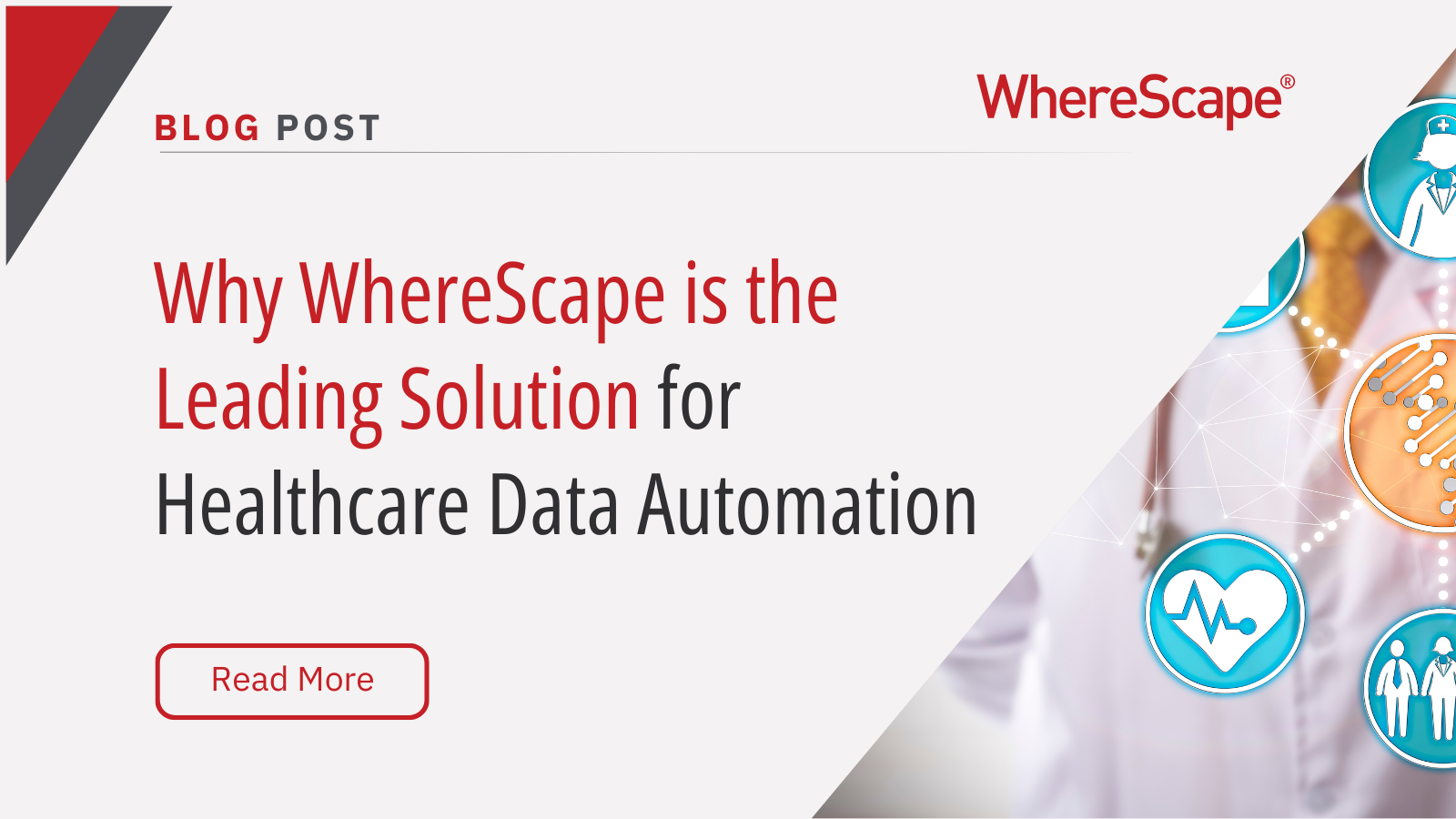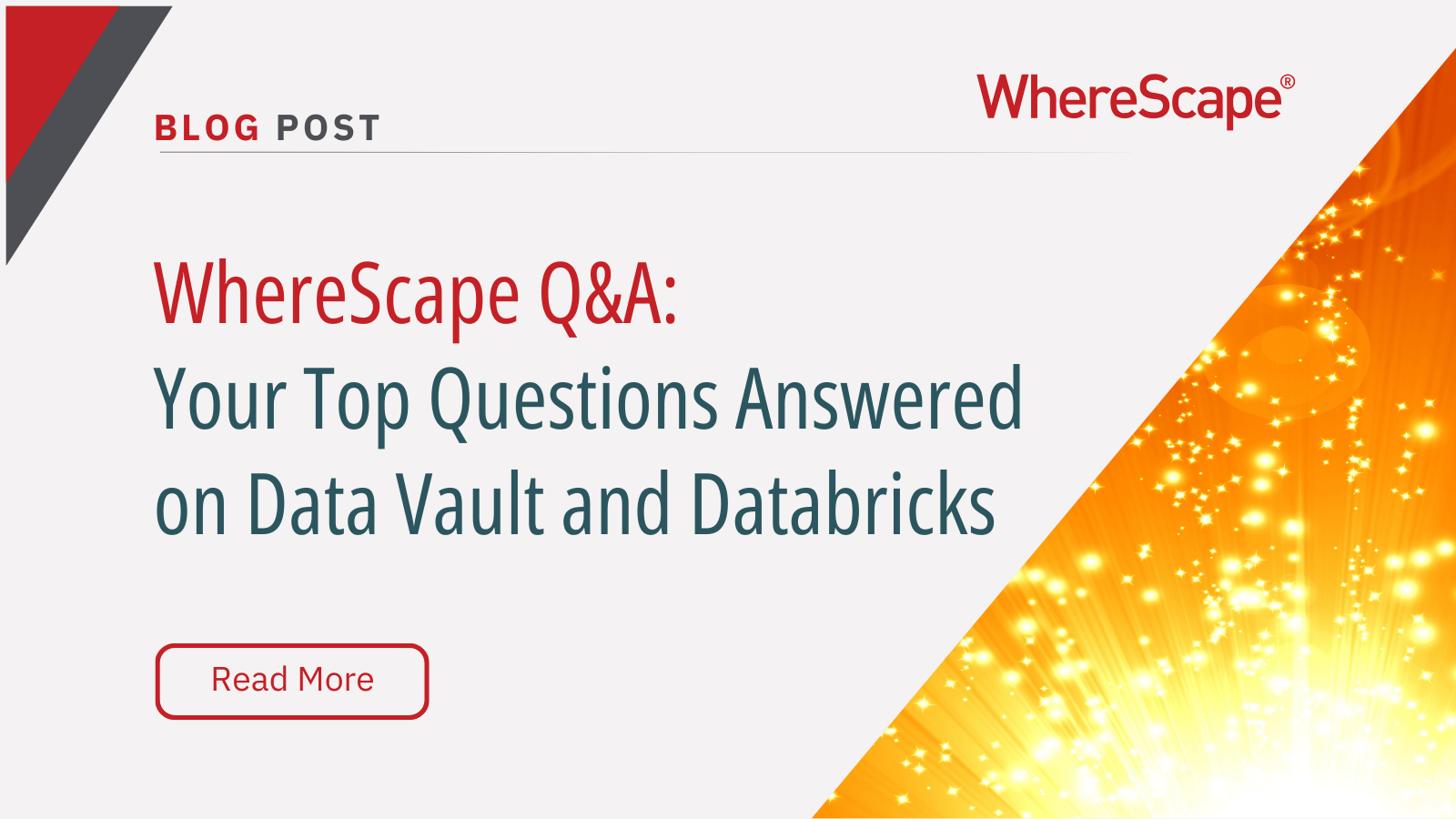Ready to explore Data Vault automation...
Investing in Data Automation: A Strategic Approach to Business Growth
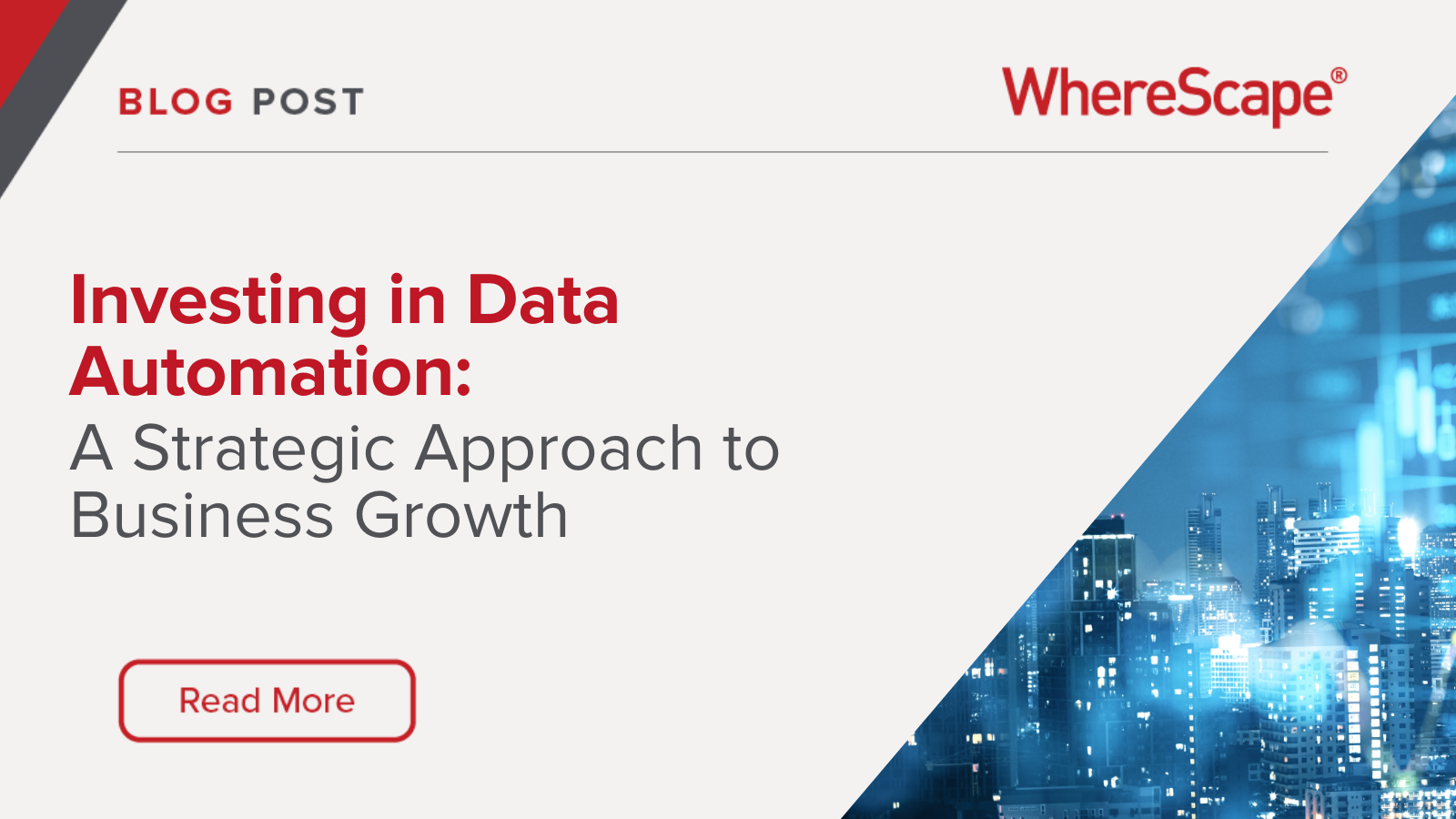
Unlocking Growth: The Strategic Advantage of Data Automation
Organizations reaping the benefits of data automation stay ahead of industry trends and improve the efficiency of their operations and decision-making. Data automation tools offer a strategic advantage for organizations in education, healthcare, manufacturing and beyond through enhanced accuracy, cost savings, scalability, and faster decision-making.
Data Automation and Its Scope
Data automation is the use of technology to perform tasks without human intervention. The scope of data automation as a whole is extremely broad. This can include everything from simple data entry to complex data analysis and predictive analytics. For example, in the education sector, data automation can streamline administrative tasks like student enrollment and calculating final grades, freeing up crucial staff time for student support.
Benefits of Data Automation for Modern Businesses
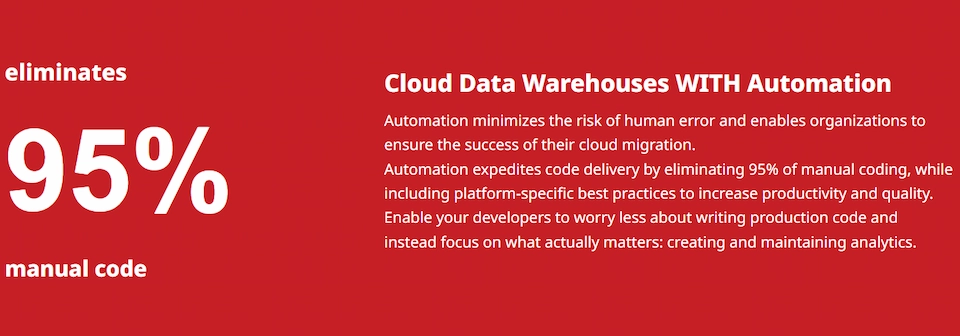
Without data automation tools, businesses across sectors are saddled with tedious and repetitive work that’s prone to human error. Data entry tasks pull company resources away from strategic goals and tie up skilled workers’ hours in menial to-do lists. Business automation allows for faster, more accurate data collection and processing, then yields deep analytics that inform future business decisions.
Enhancing Operational Efficiency
Implementing data automation can significantly enhance operational efficiency by reducing manual errors and speeding up processes. Business process automation makes faster, more streamlined tasks involve less worker intervention.
For example, in the manufacturing industry, automating inventory management ensures that stock levels are accurately monitored and replenishment is always ordered on time. This crucial workflow improves customer experience and reduces downtime for the company, benefitting the bottom line.
Driving Decision-Making with Accurate Data
In order to make strategic data-driven decisions, organizations need accurate data. Data automation systems remove the majority of the risk of human error, making analytics much more reliable and allowing teams to leverage key insights for large business decisions. For example, in the finance sector, automated data collection and analysis can provide real-time insights into market trends, helping businesses make timely and strategic investments.
Transforming Business Processes through Automation
Data automation systems make several steps of the daily workflow more efficient. When staff members no longer need to count inventory by hand, copy over patient information to a billing system, or manually coordinate student schedules, business processes in manufacturing, medicine, and education become faster and more efficient.
Data automation tools mean your staff is available to complete the meaningful tasks they were hired to do, with reduced time required and mitigated risk of errors in more tedious processes.
Streamlining Operations Across Departments
Business process automation can streamline operations across various departments by ensuring that information flows seamlessly. Automated data governance allows teams to access information securely and without interrupting broader workflows. For instance, in healthcare, automating patient records and billing systems improves coordination between administrative and medical staff, leading to a better patient experience, fewer errors, and more staff time to dedicate to patients.
Leveraging the Right Tools: A Guide to Data Automation Systems
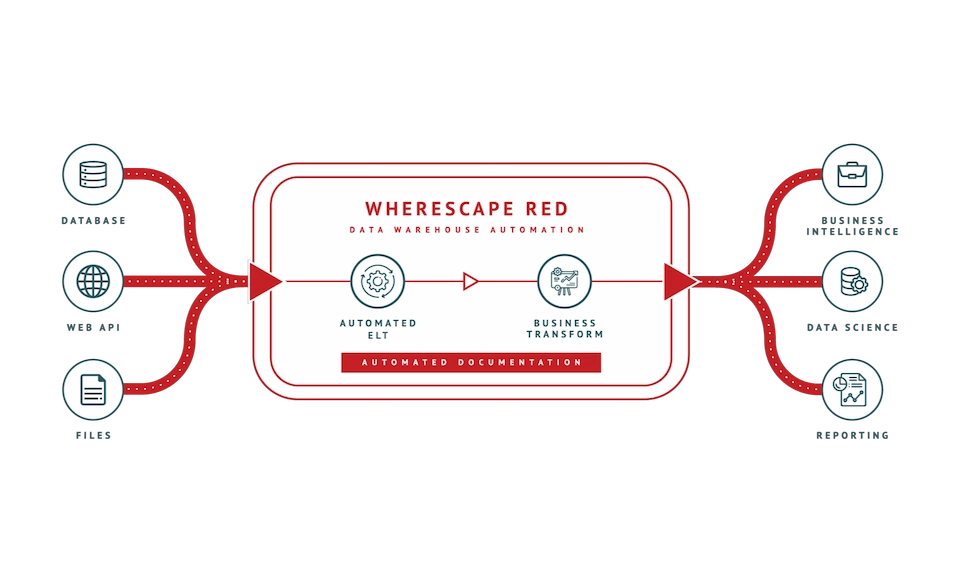
The prospect of implementing business automation in your organization may be exciting, but it’s crucial to take the decision one step at a time. Begin by evaluating the available data automation tools and ensure that you choose a data automation system that integrates with your existing software and completes the exact tasks you prioritize in your business.
Choosing Appropriate Data Automation Tools
Maximize the benefits of data automation by selecting the right tools for your unique needs. Platforms like WhereScape offer comprehensive data automation tools for automating data warehousing, which can be particularly beneficial for large-scale data management in industries like finance and manufacturing. WhereScape also integrates seamlessly with leading platforms like Snowflake and Azure, making it easy to bring this new asset into your toolbox.
Integration Strategies for Maximum Impact
Successful data automation requires seamless integration with existing systems. The specific systems you may need to integrate with will depend on your industry. For example, in the education sector, integrating automation tools with learning management systems and scheduling software can enhance the efficiency of course delivery and administration, providing a smoother experience for both educators and students. While the healthcare industry overlaps in their need for scheduling solutions, a doctor’s office will likely use different systems for storing and communicating patient data.
Choosing a business process automation tool that integrates with your preferred software means you won’t need to double back or adjust to additional changes in workflow. WhereScape’s vast selection of supported platforms allows you to keep what works in your data management system and supplement it with powerful automation technology.
Navigating the Challenges of Implementing Data Automation
Despite the many benefits, the idea of implementing business process automation in your organization may feel daunting. Since data automation touches a variety of systems and processes, it does require strategic planning to properly implement. Fortunately, with the right software and with a detailed plan, you can implement data automation tools into your business without interrupting key workflows.
Overcoming Common Barriers to Automation
The most common barriers keeping companies from implementing data automation are the high initial costs and the resistance to changing traditional workflows. To overcome these barriers, partner with a data automation solution that can prove positive ROI over time, like WhereScape. Initial costs are well worth it for the added efficiency and strategic decision-making your team can leverage with data automation.
To overcome a fear of change, take the time to educate your workforce on exactly how data automation will make their daily lives easier. When teams understand the tactile implications of implementing these systems, they are much more open to adopting them.
Best Practices for Successful Automation Implementation
To ensure successful implementation of data automation, start with a clear strategy with strong roots in education. Involve all key stakeholders from the start and communicate with your team to determine which tools best fit their needs. Provide adequate training before and during implementation to make the process as smooth and exciting as possible. WhereScape even offers a deep pool of resources to help bring you up to speed.
To find out if WhereScape is the right fit for your team, request a demo today!
WhereScape Recap: Highlights From Big Data & AI World London 2025
Big Data & AI World London 2025 brought together thousands of data and AI professionals at ExCeL London—and WhereScape was right in the middle of the action. With automation taking center stage across the industry, it was no surprise that our booth and sessions...
Why WhereScape is the Leading Solution for Healthcare Data Automation
Optimizing Healthcare Data Management with Automation Healthcare organizations manage vast amounts of medical data across EHR systems, billing platforms, clinical research, and operational analytics. However, healthcare data integration remains a challenge due to...
WhereScape Q&A: Your Top Questions Answered on Data Vault and Databricks
During our latest WhereScape webinar, attendees had fantastic questions about Data Vault 2.0, Databricks, and metadata automation. We’ve compiled the best questions and answers to help you understand how WhereScape streamlines data modeling, automation, and...
What is Data Fabric? A Smarter Way for Data Management
As of 2023, the global data fabric market was valued at $2.29 billion and is projected to grow to $12.91 billion by 2032, reflecting the critical role and rapid adoption of data fabric solutions in modern data management. The integration of data fabric solutions...
Want Better AI Data Management? Data Automation is the Answer
Understanding the AI Landscape Imagine losing 6% of your annual revenue—simply due to poor data quality. A recent survey found that underperforming AI models, built using low-quality or inaccurate data, cost companies an average of $406 million annually. Artificial...
RED 10: The ‘Git Friendly’ Revolution for CI/CD in Data Warehousing
For years, WhereScape RED has been the engine that powers rapidly built and high performance data warehouses. And while RED 10 has quietly empowered organizations since its launch in 2023, our latest 10.4 release is a game changer. We have dubbed this landmark update...
The Assembly Line for Your Data: How Automation Transforms Data Projects
Imagine an old-fashioned assembly line. Workers pass components down the line, each adding their own piece. It’s repetitive, prone to errors, and can grind to a halt if one person falls behind. Now, picture the modern version—robots assembling products with speed,...
The Role of Clean Data in AI Success: Avoiding “Garbage In, Garbage Out”
Co-authored by infoVia and WhereScape Artificial Intelligence (AI) is transforming industries across the globe, enabling organizations to uncover insights, automate processes, and make smarter decisions. However, one universal truth remains: the effectiveness of any...
What is a Cloud Data Warehouse?
As organizations increasingly turn to data-driven decision-making, the demand for cloud data warehouses continues to rise. The cloud data warehouse market is projected to grow significantly, reaching $10.42 billion by 2026 with a compound annual growth rate (CAGR) of...
Simplify Cloud Migrations: Webinar Highlights from Mike Ferguson
Migrating your data warehouse to the cloud might feel like navigating uncharted territory, but it doesn’t have to be. In a recent webinar that we recently hosted, Mike Ferguson, CEO of Intelligent Business Strategies, shared actionable insights drawn from his 40+...
Related Content

WhereScape Recap: Highlights From Big Data & AI World London 2025
Big Data & AI World London 2025 brought together thousands of data and AI professionals at ExCeL London—and WhereScape was right in the middle of the action. With automation taking center stage across the industry, it was no surprise that our booth and sessions...
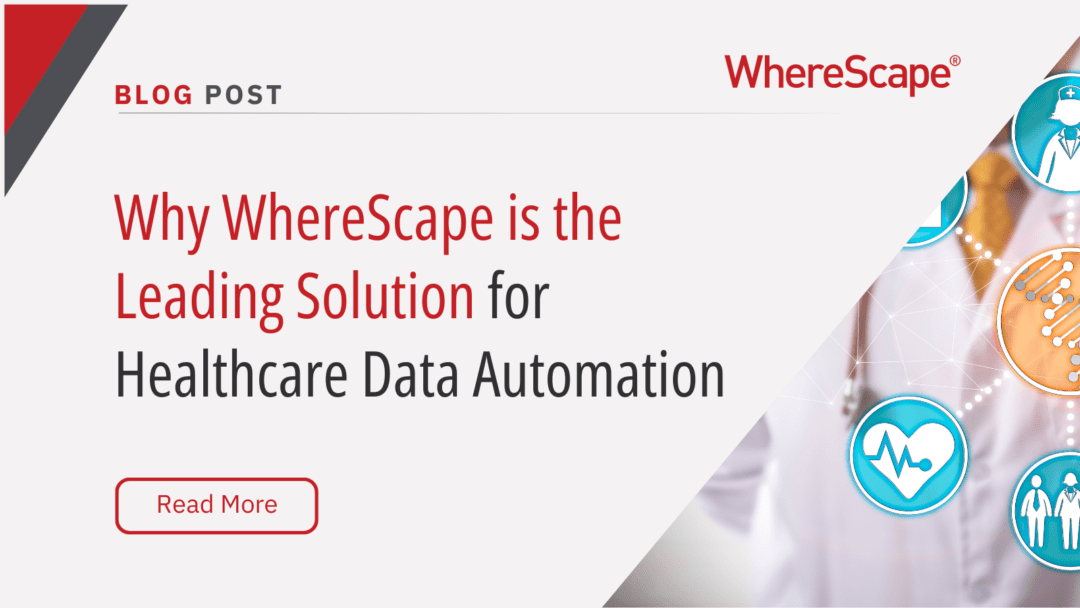
Why WhereScape is the Leading Solution for Healthcare Data Automation
Optimizing Healthcare Data Management with Automation Healthcare organizations manage vast amounts of medical data across EHR systems, billing platforms, clinical research, and operational analytics. However, healthcare data integration remains a challenge due to...
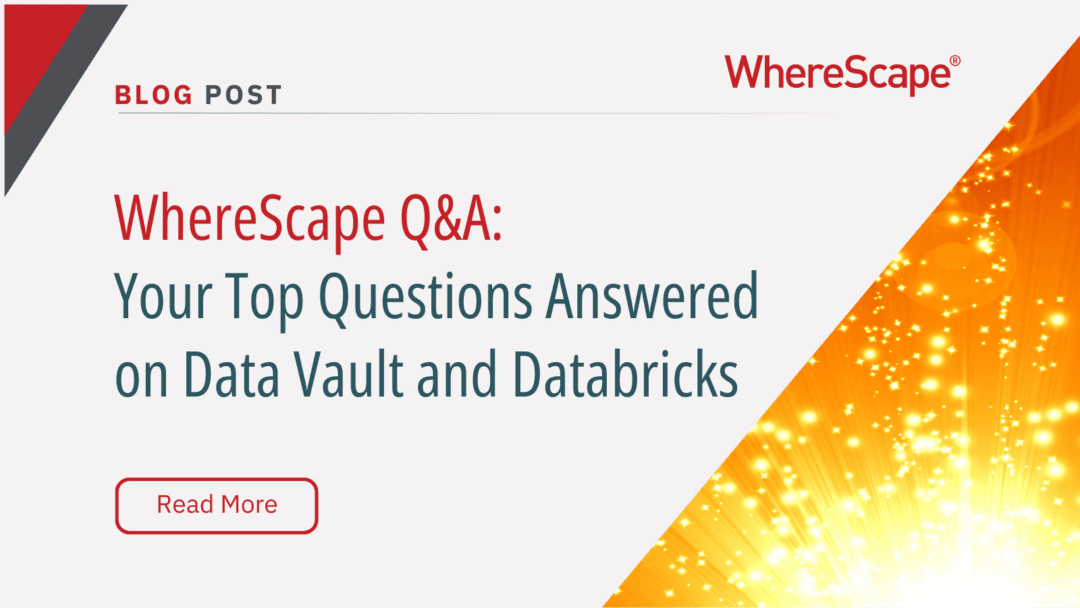
WhereScape Q&A: Your Top Questions Answered on Data Vault and Databricks
During our latest WhereScape webinar, attendees had fantastic questions about Data Vault 2.0, Databricks, and metadata automation. We’ve compiled the best questions and answers to help you understand how WhereScape streamlines data modeling, automation, and...
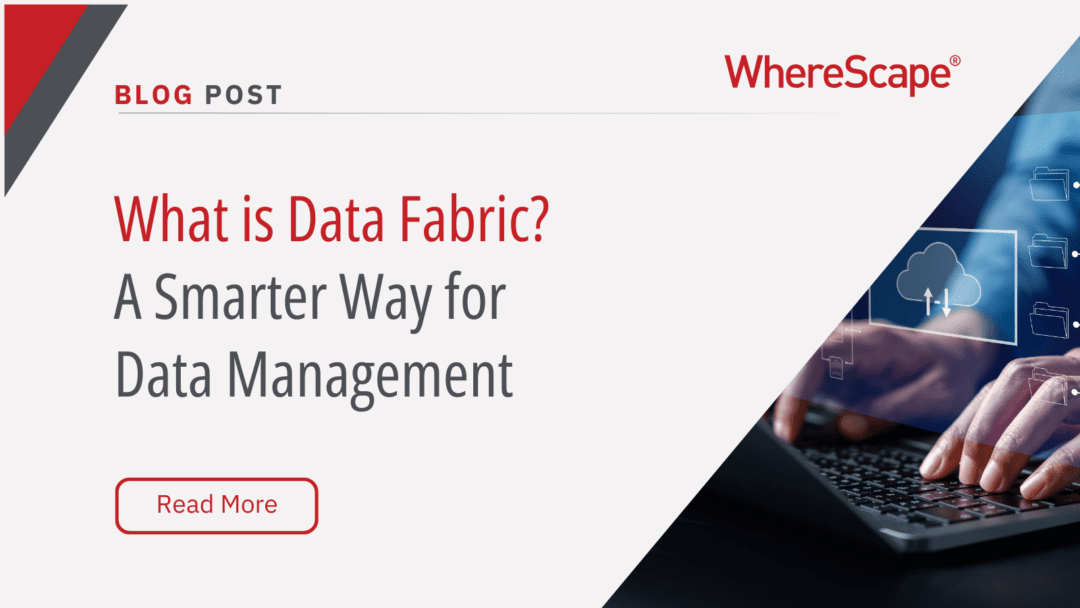
What is Data Fabric? A Smarter Way for Data Management
As of 2023, the global data fabric market was valued at $2.29 billion and is projected to grow to $12.91 billion by 2032, reflecting the critical role and rapid adoption of data fabric solutions in modern data management. The integration of data fabric solutions...



